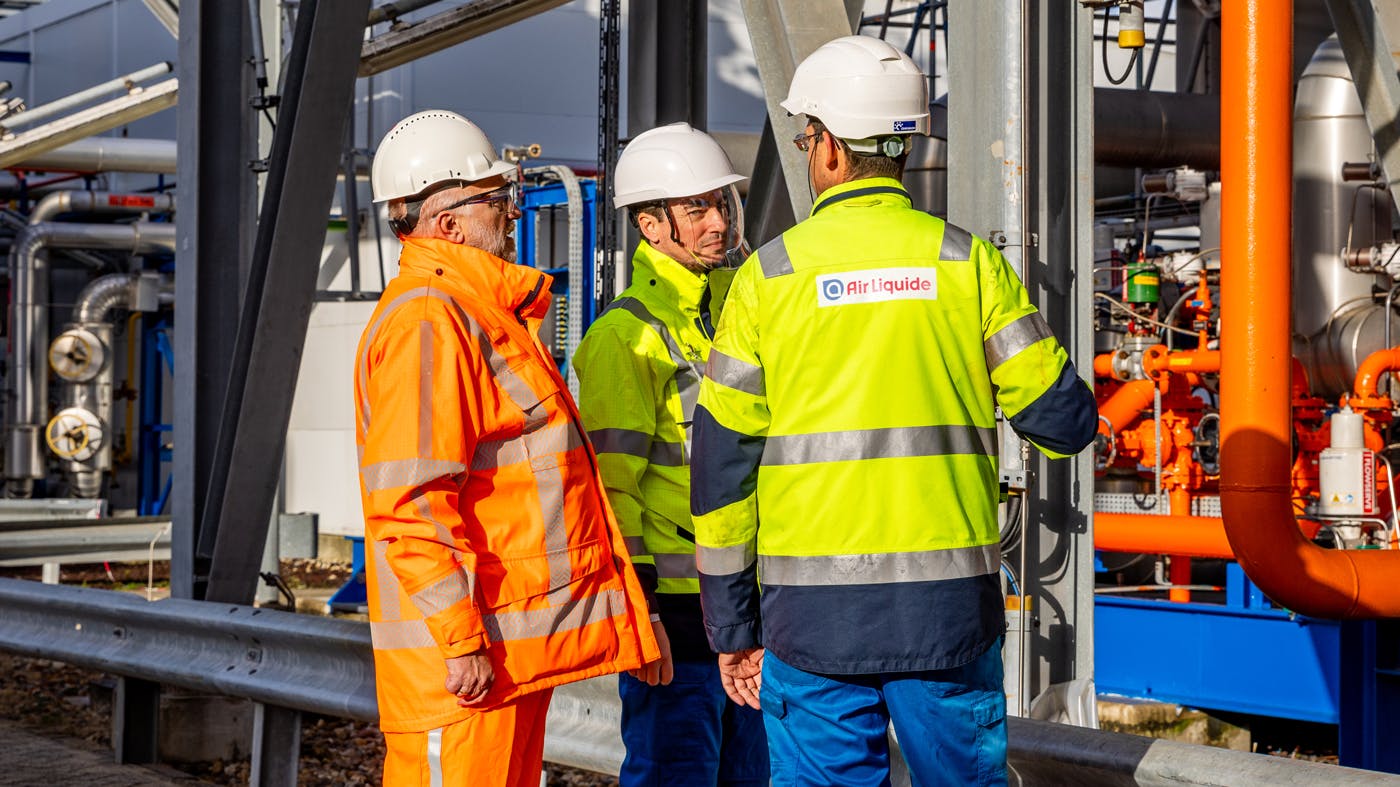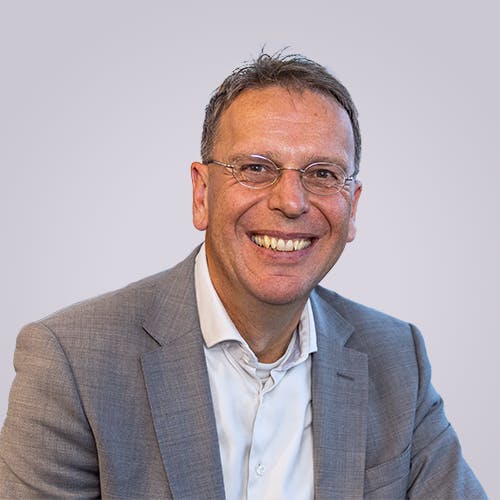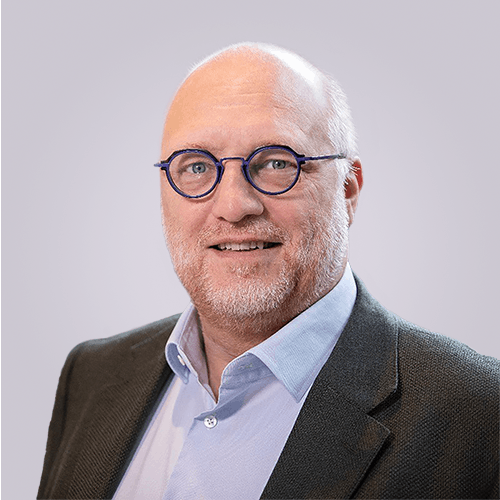Decarbonization without deindustrialization
The Port of Rotterdam is the largest port in Europe and the most important energy transportation hub on the continent. Generating € 30.6 billion, 3.2% of the Dutch gross domestic product (GDP), and over 193,000 direct and indirect jobs 1, the port area is responsible for around 15% of CO2 emissions in the Netherlands 2. That’s why the Porthos CO2 Transportation and Storage project is at the heart of the new CO2 infrastructure of the Rotterdam region. Construction of the project started in early 2024 for completion in 2026. Air Liquide is playing a leading role in the development of carbon capture, enabling the production of hydrogen with a significantly lower carbon footprint.
At the site of Air Liquide’s hydrogen plant in Rozenburg, work is underway to install a new CRYOCAP™ carbon capture facility. Using a low temperature process to condense and separate carbon dioxide during the production of hydrogen, Air Liquide’s CRYOCAP™ technology will reduce the site’s overall emissions by half.
Achieving CO2 emissions reduction targets with a strong ecosystem
Recognized as a Project of Common Interest by the European Union, the project was made possible with a CEF 3 grant from the European Commission. Porthos represents a € 1.3 billion investment, undertaken by the Port of Rotterdam Authority, Gasunie and Energie Beheer Nederland (EBN) 4 through a public-private initiative. The project will deliver the required infrastructure to collect and transport captured CO2 from industrial sites in the port area for permanent storage in depleted gas fields under the North Sea.
Four industrial launching customers, including Air Liquide, have committed to the Porthos project. The infrastructure will transport and store 2.5 million tonnes of CO2 annually, with operations set to begin in 2026. But this is just the start. The pipeline has been designed for future expansion and can transport up to 10 million tonnes per year.
Air Liquide has been developing expert knowledge of the CO2 value chain with proprietary and operational technologies since 2006, but the Porthos project is the first to store CO2 in a depleted gas reservoir. As such, it will provide important learnings for the CCS players involved. Air Liquide’s objective is to accelerate the development of carbon capture and storage on a global scale, with projects underway in Europe, North America and Asia.
While accelerating the deployment of renewable energy is essential, CCS is a key solution for decarbonizing hard-to-abate industries, such as cement, steel, and chemicals, to reach carbon neutrality by 2050.


We are transforming the port of Rotterdam into a sustainable, low emissions area in line with the European Industrial Carbon Management Strategy. We have around 80 ongoing projects, so infrastructure is key. Facilitating CCS is one of the solutions to help industries in hard-to-abate sectors shorten the time gap as they transition away from fossil fuels.
⟶Jeroen Steens,,
Commercial Delivery Director for the Port of Rotterdam


It is very important to work with established industrial players like Air Liquide, who bring their experience and expertise on CO2 technology and operations. Their contribution is highly appreciated and very valuable to the development of the Porthos system.
⟶Hans Meeuwsen,,
Project Director of Porthos

